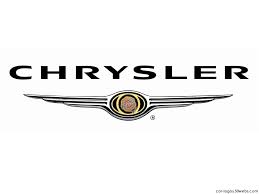Pacifica V6-3.8L VIN L (2005)

Connecting Rod Bearing: Service and Repair
Measuring Connecting Rod Bearing Clearance
STANDARD PROCEDURE - MEASURING CONNECTING ROD BEARING CLEARANCE
CAUTION: Two styles of connecting rod with bearing caps are available (standard forged and forged cracked cap). Either may be used as a
replacement part, as both rods interchange. The difference is the tightening specification between designs.
Either style of bearing cap is not interchangeable and should be marked at removal to ensure correct assembly The bearing shells must be installed
with the tangs inserted into the machined grooves in the rods and caps. Install cap with the tangs on the same side as the rod. Fit all rods on one bank
until complete. Connecting rod bearings are available in the standard size and the following undersizes: 0.025 mm (0.001 inch) and 0.250 mm (0.010
inch).
CAUTION: Install the bearings in pairs. Do not use a new bearing half with an old bearing half. Do not file the rods or bearing caps.
Measure connecting rod journal for taper and out-of-round.
The connecting rod bearing clearances can be determined by use of Plastigage or the equivalent. The following is the recommended procedure for the
use of Plastigage:
1) Rotate the crankshaft until the connecting rod to be checked is at the bottom of its stroke.
2) Remove oil film from surface to be checked. Plastigage is soluble in oil.
3) Place a piece of Plastigage across the entire width of the bearing shell in the bearing cap approximately 6.35 mm (1/4 inch) off center and away
from the oil hole. In addition, suspect areas can be checked by placing Plastigage in that area.
4) Assemble the rod cap with Plastigage in place. Tighten the rod cap to the specified torque. Do not rotate the crankshaft while assembling the cap
or the Plastigage may be smeared, giving inaccurate results.
5) Remove the bearing cap and compare the width of the flattened Plastigage with the scale provided on the package (Fig. 83). Locate the band
closest to the same width. This band indicates the amount of oil clearance. Differences in readings between the ends indicate the amount of taper
present. Record all readings taken. Refer to Engine Specifications. Plastigage generally is accompanied by two scales. One scale is in inches, the
other is a metric scale. If the bearing clearance exceeds wear limit specification, replace the bearing.
